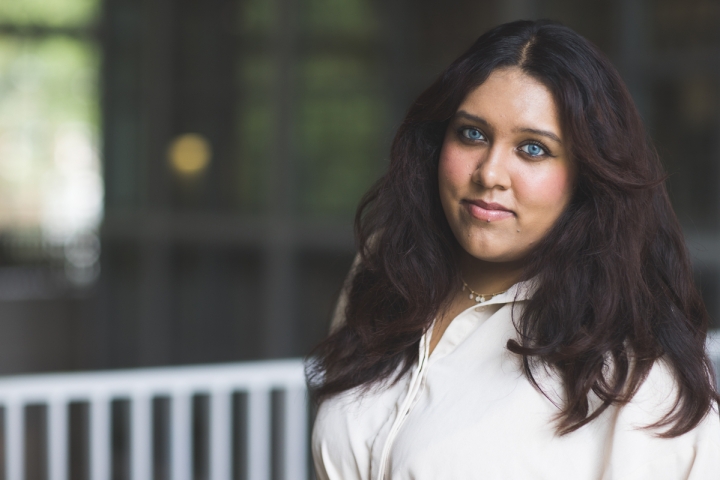Growing up in rural Bangladesh, Mahin “May” Alam ’26, witnessed the inequities of a warming planet firsthand. Bangladesh is increasingly subject to monsoons that wash away homes and devastate communities, and Alam noticed that the effects of climate change were spread unevenly around the globe.
“I see and believe that individuals most vulnerable to climate change and environmental injustice are the ones least responsible for their causes,” she says.
Her desire to understand the systemic forces that allow the occurrence of large-scale violence and atrocities, along with her interest in sustainability and climate injustice, led Alam to apply for and win a Gilman Scholarship to study in Berlin this fall on a foreign study program called German-Jewish Studies Migration and Memory.
Her group will do an intense immersion into Jewish history and life in Berlin from the late 18th century to the present, taking on issues such as war, racism, antisemitism, and violence. Alam says she is “fascinated by how Germany and Berlin, particularly, incorporates memory and remembrance of the Holocaust, the Stasi state, and its goals of honoring its past with the sustainable architecture of the city.”
She says she is “eager to understand how individuals working in broader systems may function together to normalize violence...and how we may mitigate these devastating outcomes in the future.” The group will travel to various historic sites within Germany and participate in a five-day excursion to Poland as well.
The U.S. State Department’s Benjamin A. Gilman International Scholarship Program is intended to broaden the pool of American college students learning and interning abroad. It offers up to $8,000 to help students who are federal Pell Grant recipients to travel and learn in countries outside the United States. The aims of the program, which has been administered by the Institute of International Education since 2001, are to develop future leaders from a range of backgrounds, to help more U.S. students gain essential skills through foreign study, and to broaden the places American students go to study abroad.
A first-generation college student who grew up in Bangladesh and New York, Alam heard about the Gilman scholarship from Mariam Banahi, assistant director of Dartmouth’s First-Generation Office and First Year Summer Enrichment Program. Alam describes Banahi as “a pillar of support” and says that her encouragement and help, as well as the example of past Dartmouth Gilman recipient Samantha Palermo ’24, were invaluable in equipping Alam with the confidence to apply for the competitive award.
“We in the First-Generation Office know that May is a remarkable human being with a bright future ahead of her, and we are so glad that the Gilman Scholarship folks saw this as well,” says First-Generation Office Director Jay Davis ’90.
Alam is looking forward to her time abroad and says she wants to draw lines between environmentalism and political and humanitarian issues.
“I am fascinated by further understanding this through an environmental and structural lens,” she says. “How does human psychology allow for the building of massive camps in dense forests for the purpose of annihilating a group? How may this be prevented in the future? What environmental impacts does this leave on the physical health, mental health, and communal memory of individuals and their descendants?”
* * *
More information on Gilman and other fellowship opportunities is available through Fellowship Advising.

